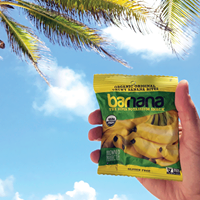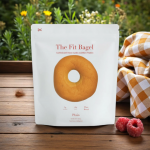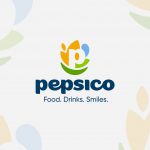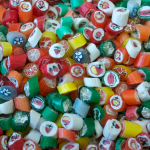Barnana Backs Indigenous Farms Through Acquisition and New Product
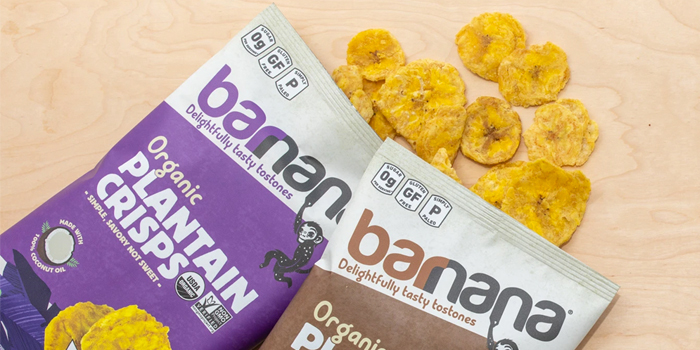
The upcycled food industry has grown to a $46.7 billion market over the past decade as consumers become increasingly aware of the impact their buying habits have on the global climate, according to a report from market research firm FMI. Snack maker Barnana’s latest upcycled product furthers the company’s commitment to regenerative agriculture, while its recent acquisition of farming and supply partner Agroapoyo has solidified its ability to execute that mission as it looks toward future growth and expansion.
How are Barnana and Agropayo connected?
Based in Ecuador, manufacturing and supply chain company Agroapoyo has been Barnana’s primary operations partner in the Amazon region for the past eight years. The company is tasked with collecting plantains for the snack producer from farms across the region, which have grown from several hundred family-farms to over 1,500 affiliates over the last two years.
Barnana, founded in 2012, and Agroapoyo, launched in 2001, have matured alongside each other, Barnana founder Caue Suplicy said.
Both companies also share a strong commitment to reducing food waste. Because many plantain farmers in the region operate in remote areas of the jungle, it previously was difficult for them to find buyers — resulting in much of their crops going to waste. In fact, many did not even try to sell their plantains, instead simply growing the trees to provide shade for other crops.
Together, Agroapoyo’s network and Barnana’s commitment to using upcycled plantains have resulted in both less waste, but also a consistent income stream for these growers. Suplicy said that when a farmer partners with Agroapoyo, on average their income quadruples
Agroapoyo also helps guide farmers through the organic certification process and teach them to utilize regenerative production methods which often require significant operational changes on the farm. However, Suplicy said the investment ultimately is worth it for farmers as Agroapoyo’s methods make the growing process more efficient and increase plantain yields.
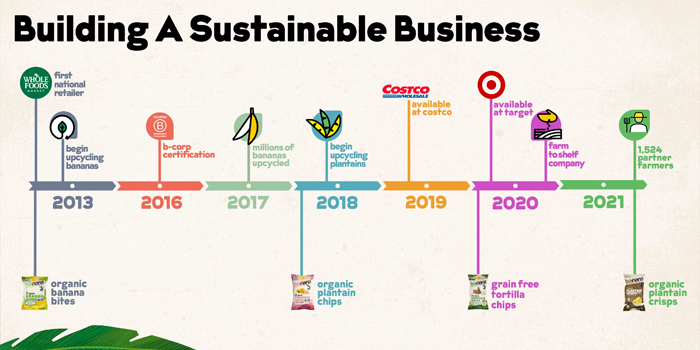
After realizing how intertwined their missions were, Suplicy said it made sense to bring the two companies together under one entity.
“I always had this vision that with Barnana we could help make a difference in people’s lives and the environment and this is proof that we are able to do that,” Suplicy said. “When I started the company I had the misconception that most people do that if you want to grow a company, you need to work with a factory farm and big companies that are growing food in scale. Luckily I was able to prove myself and a lot of people in the industry wrong.”
Rather than an entirely cash transaction, Suplicy said, Agroapoyo also instead accepted shares in Barnana.
What does this mean for Barnana?
By bringing its primary ingredient supplier in-house, Barnana is aiming to continue an arrangement that proved fruitful during the pandemic, as the company saw less supply chain disruption because of its already close relationship with Agroapoyo. However, the bigger driver for the deal, Suplicy said, was the opportunity to increase its commitment to regenerative farming methods and, subsequently, bring this to the forefront of the brand’s positioning.
“It’s not easy to organize 1,500 families… and that’s where Agroapoyo comes in,” Suplicy explained. “They do an incredible job doing that and supporting the farmers. They are our boots on the ground, visiting the farms in the Amazon… It’s a lot of work, but it’s well worth it being able to help them.”
Barnana will also now find itself with another revenue stream. With the transaction, Barnana inherits Argoapoyo’s existing customers for organic plantains, becoming the crop’s leading global supplier. South American plantains previously were grown using conventional farming methods and seen as a commodity crop.
How does the new product fit into this picture?
Accompanying the acquisition announcement, Barnana has also introduced a new product — Organic Plantain Crisps. The crisps are fried in coconut oil, which preserves the nutritional properties of the plantain, and have a “flakier” texture than the brand’s original plantain-based chip line and come in Sea Salt and Garlic flavors. Sold in 4 oz. bags for $4.99, the Crisps are now available at Whole Foods nationwide and select Sprouts Farmers Market locations.
Suplicy said the new product also emphasizes Barnana’s mission by the simple fact that it is not a potato-based product. “Potatoes are a monocrop that require a lot of pesticides, one of the heaviest use of pesticides in the agricultural industry, and that does a lot of damage to the soil,” he explained.
The new launch was also supported by consumer research conducted by the company that justified the popularity of plantains in the United States and the introduction of this additional variety for Barnana: “in the same way if you go to the chip aisle in the grocery store you have several different types of potatoes for different occasions — we realized that we had permission to do the same.”

